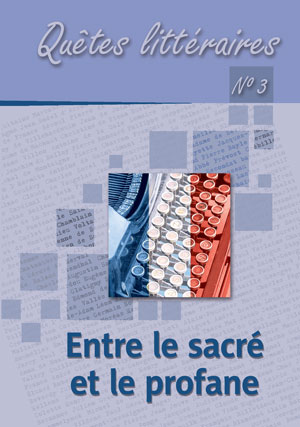L’amour vu comme un « rite de passage » : la confrontation du sacrum et du profanum chez Marguerite Duras
Love as a "rite of passage" – a confrontation between the sacred and the profane in selected works of Marguerite Duras
Author(s): Anna LedwinaSubject(s): Language and Literature Studies, Literary Texts, Studies of Literature, Comparative Study of Literature, French Literature, Theory of Literature
Published by: Katolicki Uniwersytet Lubelski Jana Pawła II, Instytut Filologii Romańskiej & Wydawnictwo Werset
Keywords: desire; experiment; sexual initation; absolute
Summary/Abstract: One of the distinguishing characteristics of Marguerite Duras’ works is her focus on contradictions, especially in the realm of physicality, which is part of the "dialectic of desire", nonverbal pleasure. In the analysed novels: Un Barrage contre le Pacifique and L’Amant this passion manifests itself through the "rite of passage". It is a double discovery of one’s own and someone else’s physicality. Duras perceives love as an uncontrollable, violent "experiment", a rebellion against the mother and restrictions. Narrating one of the most important (and secret) episodes of her life – crossing the Mekong – the author depicts sexual initiation of a young heroine (Duras’ alter ego), who seduces a mature man with her behaviour and dress. This experience allows her to experience the absolute and become initiated and free. For the narrator it is an opportunity for in-depth analysis of the secular and the sacred aspects of desire. To fully understand the sacred and the profane in Duras’ works, it seems necessary to approach the phenomenon from an interdisciplinary perspective.
Journal: Quêtes littéraires
- Issue Year: 2013
- Issue No: 3
- Page Range: 142-150
- Page Count: 9
- Language: French

